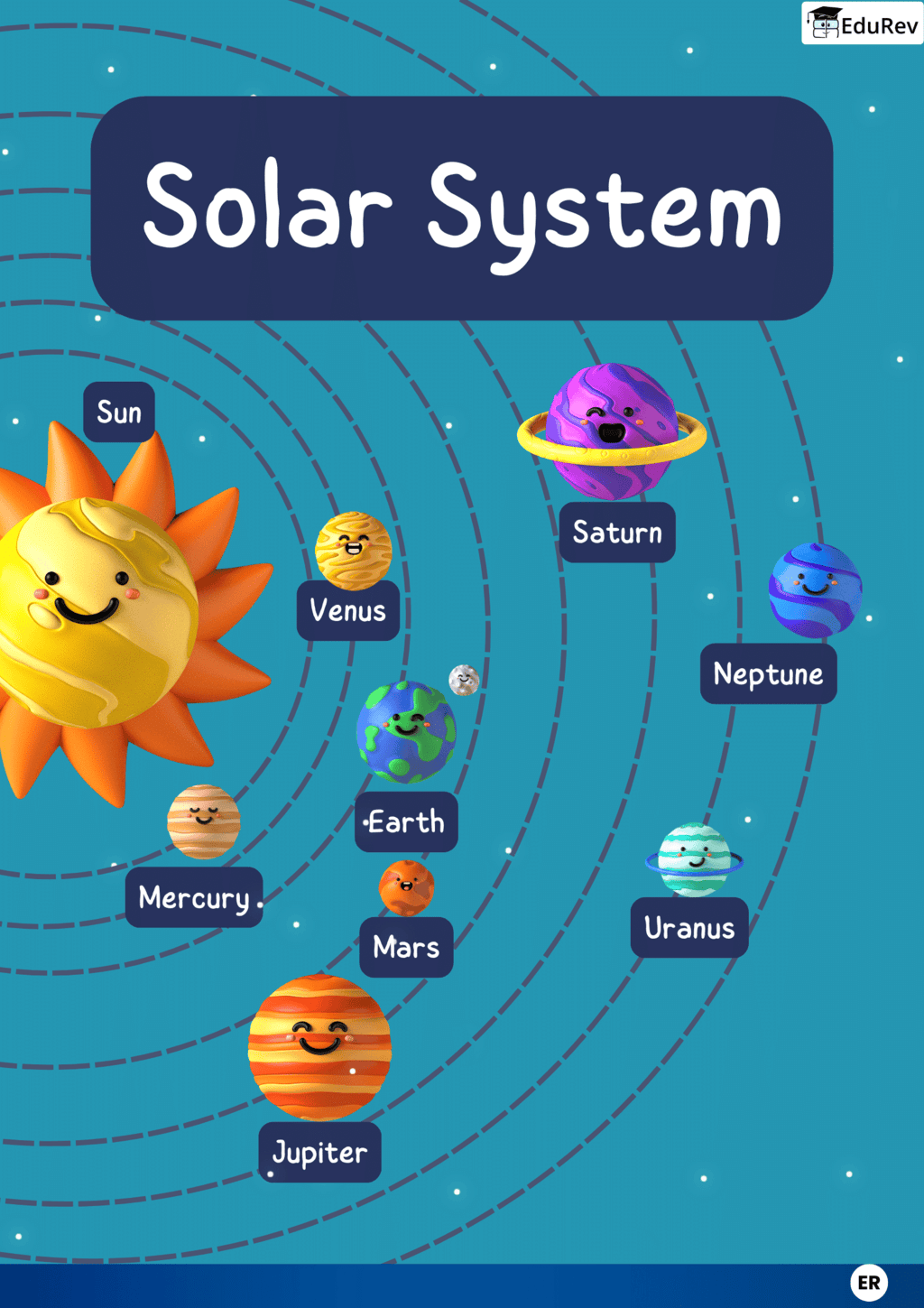Class 2 Exam > Class 2 Notes > EVS for Class 2 > Poster: Earth and Solar System
Poster: Earth and Solar System | EVS for Class 2 PDF Download

The document Poster: Earth and Solar System | EVS for Class 2 is a part of the Class 2 Course EVS for Class 2.
All you need of Class 2 at this link: Class 2
|
30 videos|243 docs|48 tests
|
FAQs on Poster: Earth and Solar System - EVS for Class 2
| 1. What is the Earth and its importance in the Solar System? |  |
Ans.The Earth is the third planet from the Sun and the only known celestial body to support life. Its unique atmosphere, presence of water, and suitable climate make it essential for the survival of various organisms. The Earth plays a crucial role in maintaining the balance of ecosystems and is vital for human existence.
| 2. How does the Solar System function as a whole? |  |
Ans.The Solar System consists of the Sun and all the celestial bodies that are gravitationally bound to it, including eight planets, their moons, asteroids, and comets. The gravitational pull of the Sun keeps these bodies in their orbits, and each planet has its own path and characteristics, contributing to the dynamic nature of the Solar System.
| 3. What are the main characteristics of the planets in the Solar System? |  |
Ans.The planets in the Solar System can be categorized into two types: terrestrial planets (Mercury, Venus, Earth, and Mars) and gas giants (Jupiter, Saturn, Uranus, and Neptune). Terrestrial planets have solid surfaces, while gas giants are composed mostly of gases and lack a well-defined solid surface. Each planet has unique features such as size, composition, atmosphere, and potential for supporting life.
| 4. What role does the Sun play in the Solar System? |  |
Ans.The Sun is the central star of the Solar System and provides the necessary light and heat that sustain life on Earth. It is the largest object in the Solar System, containing about 99.86% of its total mass. The Sun's energy drives weather patterns, ocean currents, and photosynthesis, making it crucial for maintaining the planet's climate and ecosystems.
| 5. How do astronomical events affect the Earth and the Solar System? |  |
Ans.Astronomical events such as solar eclipses, meteor showers, and planetary alignments can have various effects on Earth and its inhabitants. These events can enhance our understanding of the universe, influence tides and natural phenomena, and even inspire cultural and scientific advancements. Additionally, studying these events helps scientists predict future occurrences and understand the dynamics of the Solar System.
Related Searches
















